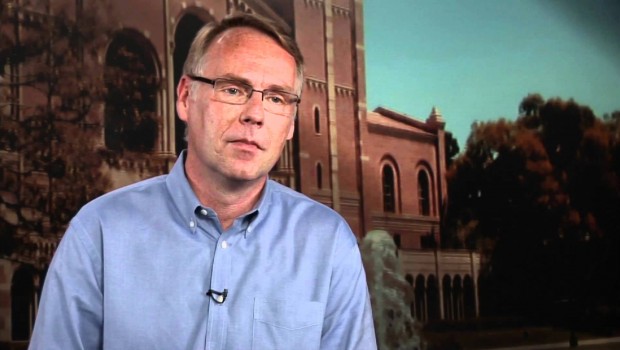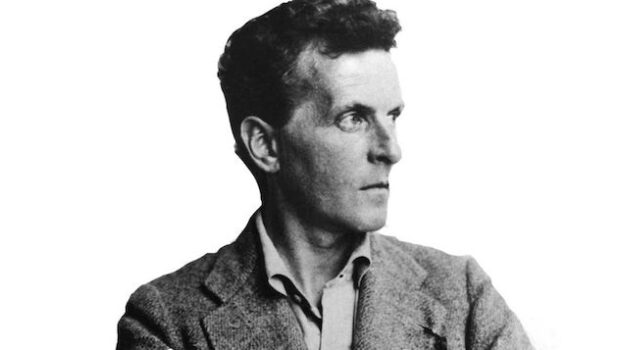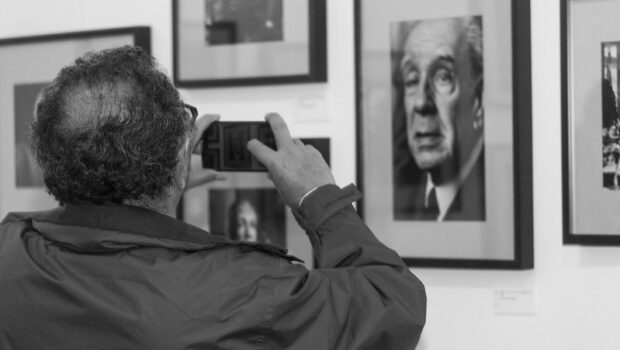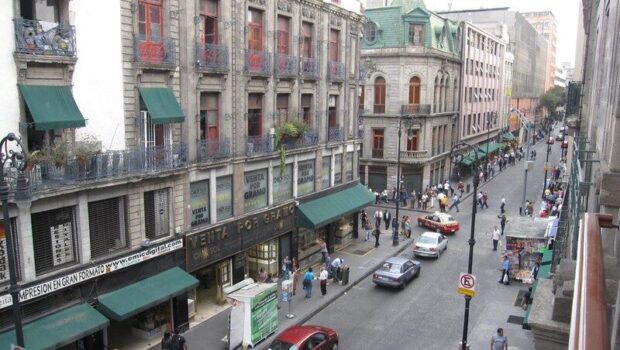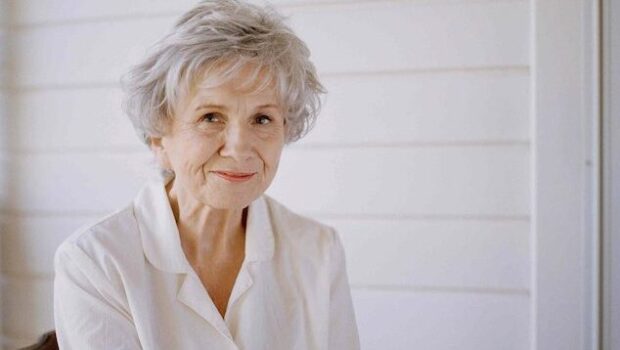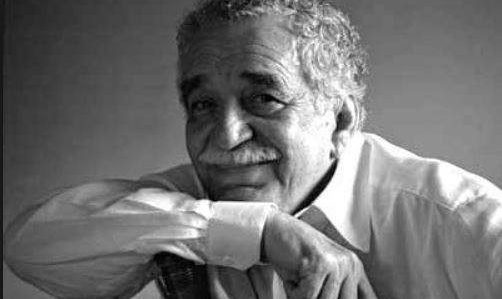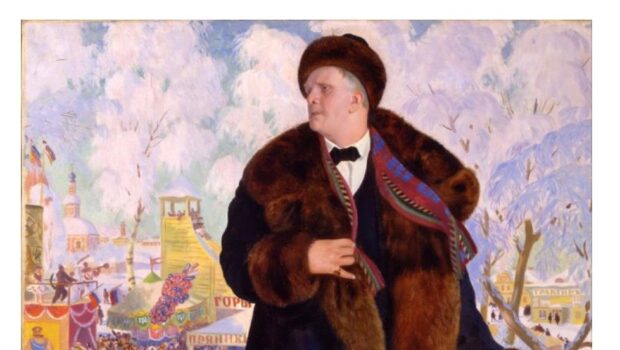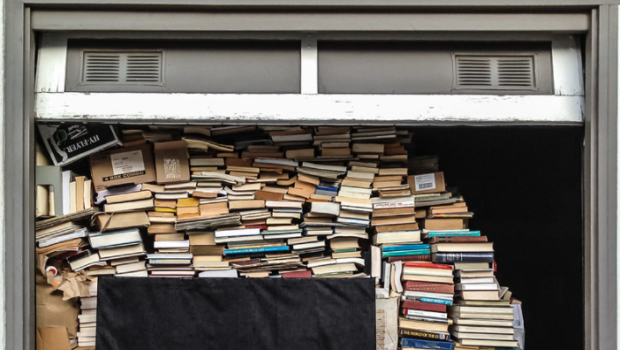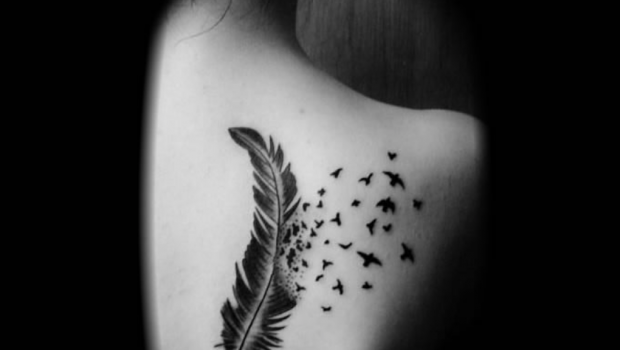Seven Days in Havana
Maarten van Delden
As Cubana de Aviación flight number 153 to Havana slopes away from the shiny beaches of Cancún, I strike up a conversation with the young Afro-Cuban man sitting next to me. He’s a musician, he works in Mexico, and he’s on his way home to visit his family. After the plane lands in Havana, I spot him in the baggage claim area collecting large boxes filled with toys, kitchen appliances, and clothing. Now, as we fly over the sea separating the Yucatán peninsula from Cuba, he leans forward to show me a video on his phone. Compay Segundo is my father, he informs me. I nod, even though I don’t recognize the name. You can go hear him play every Friday and Saturday at the Hotel Nacional, he continues. On the man’s phone, I observe a Cuban jazz band performing in a large, well-lit ballroom to an audience of aging tourists moving tentatively to the music.
The passenger on my left—an intense-looking man in his seventies wearing a dark blue blazer, grey slacks, and expensive shoes—is also eager to talk. He lives in San Diego and this will be his second visit to Cuba. I love it there, he says. Did you know that the Cubans are the second-best educated people in the world? I admit that I didn’t know that. So who are the first-best educated? The man seems surprised by my question, which I repeat. He thinks it over for a moment, after which he informs me that the Swiss are the best-educated people in the world. I thought the Finns were at the top, I comment. No, he insists, first the Swiss, then the Cubans. When the children behind us start making a row, he becomes upset. Damn kids, he mutters. That woman should have had an abortion.
In the lobby of the Hotel Habana Libre, prosperous-looking tourists wander past the photographs on the walls documenting the hotel’s role in the early years of the revolution. In 1959, Fidel Castro ruled the country from a suite on the twenty-fourth floor. I stop for a moment to gaze at a picture of the Turkish poet Nȃzim Hikmet, shot in 1961 on the balcony of his room in the Habana Libre, with the sun-splashed sea in the background. According to the caption, the poet stated during his visit to Cuba that nothing could ever separate Fidel from the people of Havana. In a corner of the lobby, I observe a display calling for the release of the “Cinco Héroes,” five men sentenced to long prison sentences in the United States for spying for Cuba. From my room on the hotel’s twenty-third floor, I have a magnificent view of the city’s rooftops and the deserted Malecón beyond. It occurs to me that Sergio’s apartment in Memorias del subdesarrollo must have been in this very same neighborhood. I’m pleasantly surprised by the fifties-style furniture and the pastel colors of the walls and the bedspread. When I open the sliding doors to the balcony, the sheer curtains undulate softly in the breeze. In the street below, I notice a banner proclaiming “Socialismo o muerte.”
The next morning, I leave my hotel immediately after breakfast, planning to walk to the Plaza de la Revolución and the Monumento a José Martí. At the corner of Calle 23 and Avenida de los Presidentes, not sure of my directions, I pull a map from my pocket. Instantly, a young black man approaches me, and offers to accompany me to my destination. His name is John and he’s a medical student at the University of Havana. It’s about nine o’clock in the morning, and I ask him whether he doesn’t need to go to class. No, he insists, I’ve just finished studying in the library and I have the rest of the morning off. We walk past the Monumento a José Miguel Gómez, who, John informs me, fought alongside Fidel in the revolution. Gómez doesn’t look like a twentieth-century revolutionary to me, but I decide not to say anything. As we walk toward the intersection of Independencia and Salvador Allende, he asks me if I’ve heard of el Che. Yes, of course, I reply. In Cuba, he continues, we admire Fidel, but we look up to el Che more than anyone else.
John asks me where I’m from. The Netherlands, I tell him. Have you ever been there? He laughs. Of course not! I’ve never even been off the island. You, he says, looking at me. How old are you? And how many countries have you visited? Oh, not that many, I reply. Perhaps twenty or so. John looks impressed. Here in Cuba, he comments, you can become eighty years old without ever leaving the island. By now, we’re facing the vast expanse of the Plaza de la Revolución, surrounded by block-shaped government buildings adorned with huge posters of el Che, Fidel, and Camilo Cienfuegos. John recalls the speeches by Fidel he was forced to attend as a schoolboy. It was very hot and the speeches seemed to last forever. You know, he says in a quiet voice, some people think that Fidel was a dictator. But I think Raúl is worse. He’s a military man. He’s tightening the screws much more than his brother ever did. As we wander through a residential neighborhood of dilapidated homes on the far side of the Plaza de la Revolución, John continues his ruminations on the situation in Cuba. He is no longer expressing admiration for the island’s rulers. What hotel are you staying at? And how many channels do you have on the TV in your room? I don’t know, I tell him, but I have plenty. John informs me that Cubans have access to only two channels in their homes. Two state-run channels. There’s nothing to watch on TV in Cuba. And in your country, he inquires, do you have internet at home? Yes, in fact I do, I answer. John shakes his head in disgust. In Cuba, he mutters, it’s as if we were living in a cave. No one has internet at home. It’s impossible to access information in this country.
We wander around the streets of Havana for several hours, talking. Eventually, John suggests that we have lunch. Do you like seafood? he asks. I’ll take you to Los Tres Mosqueteros. When we get to the restaurant, we climb up a narrow staircase, and are shown to a table on the rooftop. It’s early and we’re the only customers. If you come in the evening, John informs me, you can hear Compay Segundo play here. We order mojitos and lobster. From where we’re sitting, we have a view of the street below. Every time an attractive woman walks past, John stretches his neck. He peppers me with questions. Do you like Cuban girls? Have you ever used Viagra? When I tell him that I’ve been married for eighteen years, he’s amazed. Marriages never last that long in Cuba, he exclaims. He tells me that his mother is a physician and his father a mechanic. They’ve been divorced for many years. His brother, too, is a mechanic, and John, of course, is studying to become a doctor. John is wearing an orange-colored Old Navy T-shirt. I ask him where he got it. They don’t sell them here, I assume. John tells me that he often obtains clothing from foreign visitors. When the bill arrives, I’m shocked at the cost of our lunch. One hundred and seven CUCs! I could eat for a lot less than that in my country, I exclaim. We ate a lot of lobster, John comments in a neutral tone of voice. He is already clutching the box with leftovers. When we leave the restaurant, he invites me to the campus of the University of Havana, where he has a friend who sells cigars for a discounted price. I don’t smoke, I say. Perhaps you know someone who likes cigars, he insists. I don’t have any money left, I explain. I really need to go back to my hotel. We agree to meet in the evening. He’ll take me to some fun places. John must be feeling my skittishness. Is it for sure, he asks, referring to our meeting. I’ll be in the lobby of my hotel at six pm, I reassure him.
I’m resting in my hotel room, thinking to myself that I have no desire at all to go out on the town with John. Vamos a bailar la salsa, he had said, just before parting outside the restaurant where we had enjoyed lunch together. I dread having to pretend that I’m easygoing and cheerful or, even worse, feeling obliged to dance the salsa. Still, I don’t want to break my promise to John. A few minutes before six, after taking a shower, I walk to the elevator. The wait is long and the ride down slow as we make stops at several floors. When I exit the elevator and head into the Habana Libre’s lobby at a few minutes past six, I see John leaving the hotel through the automatic doors facing calle L and walking at a quick pace to the corner of the street, after which he disappears.
The next day, on my way to the Centro de estudios martianos, a skinny black man in his late forties or early fifties approaches me near the statue to Salvador Allende on Avenida de los Presidentes. Where are you from, he asks. When I tell him that I’m from Holland, he tells me how much he likes Scandinavians. They’ve done a lot of solidarity work in Cuba, he informs me. Have you been to Holland, I ask. No, I’ve only been to Africa, he says. First Ethiopia and then Angola. So you were in the war in Angola, I comment. He speaks in an animated fashion, but I can’t follow everything he says. He seems to be talking about el Che and Angola. Che was never in Angola, I point out, he was in the Congo. But the man pays no attention to my observation. When I tell him that I’m on my way to the Centro de estudios martianos, he offers to take me there. That’s alright, I say, I know the way. Still, we head into a side street together, continuing our conversation. After a few blocks, he stops and says, I have to head this way, pointing down the street on our left. But I’d like to give you something first. His hand disappears into a ragged plastic bag he’s carrying, and before I know what’s happening, he has thrust two plain-looking boxes into my right hand. They’re condoms! I inform him that I don’t need them, and make an attempt to return the boxes to their owner. But he won’t take them back. They’re for you, he insists. You never know when you might need them. They’re a gift from me to you, he adds, with a winning smile. Ok, thank you, I say, realizing that this is a struggle that I’m bound to loose. I take my wallet out of my pocket. I’d like to give you something, I state. As I’m reaching for my CUCs, I can see the man staring avidly at the bills in my wallet. Three or four pesos will be fine, he informs me. That way I can buy milk for my grandchildren. I give him four CUCs, we shake hands, and say goodbye. As I continue walking down the street, I examine my purchase. Each box contains three condoms. The price is one peso in moneda nacional per box. Since one CUC is worth twenty-five pesos in moneda nacional, the black war veteran has made a highly profitable sale.
One breezy evening, as I’m walking past the Yara cinema, across the street from my hotel, a wiry little man darts past me, whispering the words Compay Segundo several times, as if he were offering me a banned substance. The next morning, in the Habana Libre’s business center, I purchase thirty minutes access to the internet, and do a search for Compay Segundo. I learn that he was a famous Cuban musician who died in 2003.
I spend several days reading about José Martí in the narrow, wood-paneled reading room of the Centro de estudios martianos. On my first day there, I am asked to sign the guest registry, which I gladly do. As I spell out my name under the watchful eye of the librarian, I notice that only about ten or twelve people have signed the book in the last six months. Soon I’m immersed in a book called Yo conocí a Martí, a collection of testimonies by people who personally knew the man known as the Apostle. Carlos A. Aldao, an Argentine journalist who met Martí in New York in the 1890s, writes that Martí’s eyes were the most noteworthy feature of his physiognomy: “pardos, límpidos, grandes, notablemente apartados entre sí, que alejaban toda idea de falsedad o hipocresía, con reflejos simultáneos de bondad y fortaleza.” He goes on to praise Martí for his generous personality: “Jamás, en medio de las dificultades y desencantos que encontraba en la paciente y ardua organización de su obra, se le oía una expresión de odio, o siquiera de mala voluntad, contra nadie, ni contra España.” Federico Edelman, who taught Spanish at New York’s Central Evening School, praises Martí for his capacity for friendship: “La amistad de Martí, en efecto, era cosa exquisita. Su espíritu inquieto, vibrante, refinado por instinto, y su temperamento de artista, le permitían, como a pocas personas, interesarse en todo, y como además poseía en grado sumo una original y sutilísima gracia para expresar sus ideas y un buen gusto que asombraba por lo exquisito, resultaba un causeur incomparable, cualidad que hacía resaltar aún más el raro don que tenía de saber escuchar a los otros, aun cuando se trataba de gentes de quienes nada podía aprender.” The Cuban journalist, translator and critic Justo de Lara describes Martí’s love of his country: “Para los cubanos nunca tuvo sino elogios: voluntariamente fue ciego antes sus faltas. Bastaba ser cubano o simpatizador de la causa de la independencia de Cuba, para tener en él un amigo, de toda la extensión de esta dulce palabra.” Rubén Darío portrays Martí as “armonioso y familiar, dotado de una prodigiosa memoria, y ágil y pronto para la cita, para la reminiscencia, para el dato, para la imagen.” I read through pages and pages of powerful and moving evocations of the great Cuban poet and revolutionary. When I walk back to my hotel in the late afternoon, with the clouds skidding through the sky, I feel almost dizzy from thinking so much about José Martí.
One evening, tired of watching TV in my room, I head down to the lobby of the Habana Libre where a girls’ band is playing salsa music. I sit down and order a beer. After a while, two young women approach me, and ask if they can join me at my table. Of course, I say. One of the women is white, the other black. The white girl has misty blue-grey eyes and dyed platinum blonde hair. Her manner is almost impossibly languid. The black girl has curly hair, and she sits on the edge of her chair, looking bouncy and animated. I offer them drinks. They get to the point right away. Come with us, you can have sex with the two of us. I tell them that they’re very beautiful and charming, but that I didn’t come to Cuba to purchase sex. So what brings you here? I explain that I’m doing research on José Martí. How interesting, the black woman comments. Do you know the story of la niña de Guatemala? Yes, of course, I reply. The Guatemalan girl who loved José Martí so much that she died from sorrow when he married another woman. You know a lot, the black woman exclaims, delighted. We discuss the political situation in Cuba. They describe themselves as fidelistas. But a few moments later they’re complaining bitterly about their lives. We would leave Cuba if we could. They continue trying to persuade me to go with them. I ask them how much they charge. Two hundred CUCs for the two of us, they reply. And that includes the room, as well as the taxi ride. I decide to change the subject, and ask them about their day jobs. The blonde woman is an engineer, the black woman a speech therapist. They’ve known each other since their days as students at the University of Havana. Perhaps they see the surprise on my face. We’re professionals, they explain, but our salaries are so low that we can’t survive. I need money to put a roof on my house, the black woman says. The white woman has a schizophrenic brother who needs care. But let’s not talk about that, she adds quickly. Come with us, she says. We don’t even need to do anything, we can just talk about politics, if you prefer. Whatever we do, you’ll have a good time, she promises. Let’s finish our drinks, I suggest, and after that you can find yourselves another customer. If you don’t come with us, we’ll just go home, they respond. We don’t want another customer. They’re so insistent that I feel forced to leave. I pay for our drinks, put fifty CUCs on the table for the two girls, and say goodbye.
I decide to spend a few days at Playa Ancón, a quiet seaside resort near Trinidad, on Cuba’s southern coast. One hot, humid morning a fellow guest at the hotel where I’m staying approaches me while I’m staring out at the sea from my beach chair. His name is Leo, and he’s a sex tourist from Toronto. Leo is fifty-eight years old and overweight, and he wants to tell me his stories. At first he stands close to my chair, grabbing the shade from my parasol. After a while, he decides to pull up a chair for himself. He tells me that he visits Cuba twice a year, where he purchases sex from Cuban women. His wife has never asked him why he comes here so often. I need to get away once in a while, he informs me. That’s what keeps me going. He worries, though, that things will be ruined when the Americans come. Right now, he says, I don’t need to spend more than thirty dollars for a girl. My rules are simple: no girls over thirty, and no more than thirty for a girl. Except one time, he adds, when I went with a dancer from a cabaret show. She was very beautiful, and she wouldn’t do it for less than fifty. But in Las Vegas, he adds, it would have cost me two thousand to spend the night with a girl like her. So what will happen, I ask, when the Americans arrive? Well, of course, he exclaims, prices will go up!
There is a pause in our conversation. But soon enough, Leo continues with his stories. I didn’t get back to the hotel until three am last night, he says. I visited some bars in Trinidad. And then I went with a girl. By the time we were done, it was late, and the driver insisted on charging me ten CUCs for the ride back to the hotel. I know the normal charge is eight CUCs, he notes, but what do I care? When I die will I remember that I paid two dollars more for the taxi back to the hotel? Or will I remember that I was having great sex with a black girl that night? On one of his trips to Cuba, Leo had sex with twenty-one girls in fourteen days. He sighs. I don’t know how much longer I can keep this up, he says, as he stares across the beach.
In the departure hall at the Havana airport, I run into a friend who teaches at a university in the United States. He’s on his way home after attending a conference at Casa de las Américas. We exchange impressions of Cuba while we wait in the very slow check-in line. I lament the poverty I’ve seen in Cuba: the empty shelves in the stores, the buildings in ruins all across Havana, the deserted highways, the horse-drawn carriages that make up most of the traffic in the rural areas. On the contrary, my friend responds. Cuba is showing the way to a sustainable economy. With the way things are going, sooner or later we will all have to learn to live like the Cubans.
Posted: March 9, 2014 at 1:25 am


